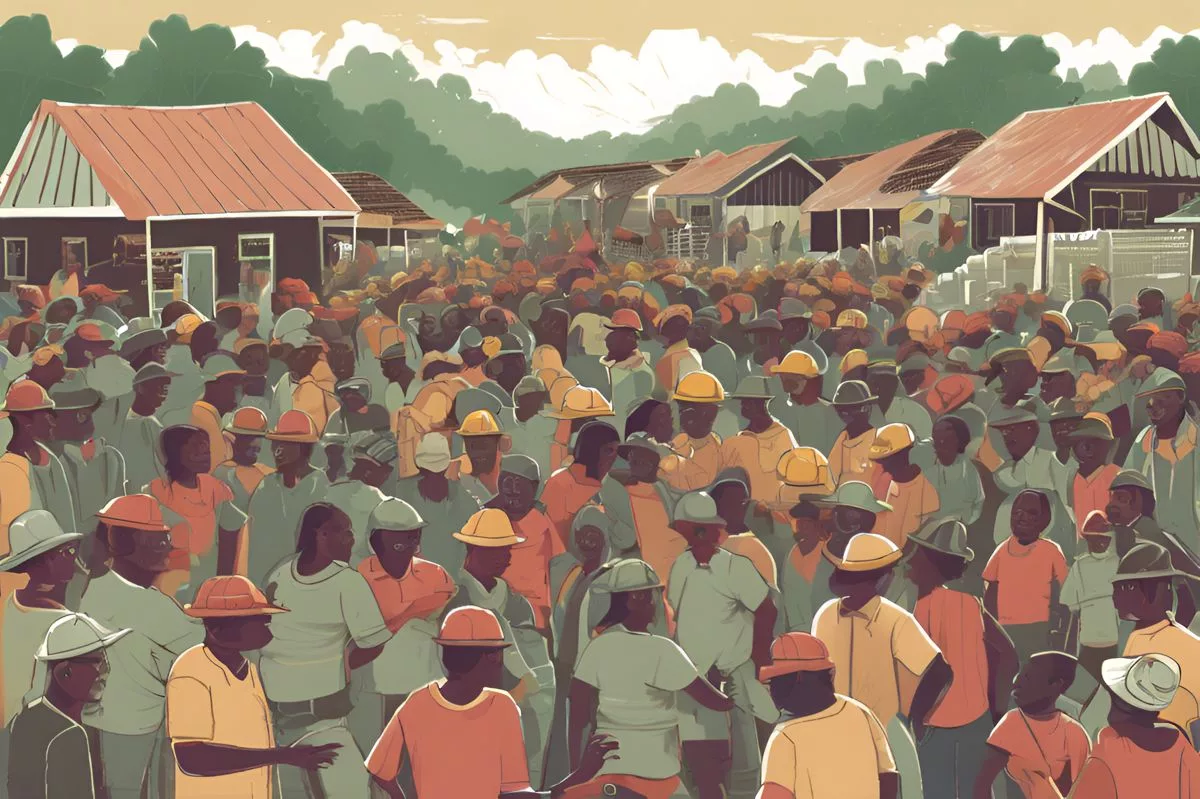South Africa’s Western Cape Education Department plans to cut over 2,000 teaching posts due to budget deficits, causing an uproar among the country’s two most influential teacher unions. The unions argue that the move will negatively impact education quality and disproportionately affect underprivileged working-class students. The situation highlights the need for a comprehensive review of budget allocations and lasting sustainability in education investment.
South Africa’s Western Cape Education Department plans to eliminate over 2,000 teaching posts due to budget deficits, leading to a formal disagreement with the country’s two most influential teacher unions. While the department assures that contractual teachers won’t be retrenched, the unions argue that the move will negatively impact education quality and disproportionately impact underprivileged working-class students. The situation highlights the need for a comprehensive review of budget allocations and lasting sustainability in education investment.
Union Dispute Over Teaching Post Reductions
South Africa’s education sector is reeling from a potentially transformative development. The country’s two most influential teacher unions have lodged formal disagreements with the Western Cape Education Department. At the heart of this dispute is a controversial plan by the department to eliminate over 2,000 teaching posts, inciting widespread criticism from educational stakeholders and beyond.
On August 28, the Western Cape Education Department disclosed its intention to lay off around 2,400 teachers in the wake of a projected budget deficit of R3.8 billion over the forthcoming three-year period. The National Treasury’s available funds merely cover 64% of the Compensation for Employees, leaving the province to bear the weight of the remaining 36%. Despite an implemented R2.5 billion budget cut, the department conveyed that it was compelled to take such extreme measures to ensure financial stability.
The department, in its statement, affirmed its recognition of the pivotal role teachers play in molding the nation’s future. The decision to reduce the teaching staff was not made lightly, acknowledging the probability of this move negatively impacting the quality of education.
The Department’s Stance and Unions’ Reactions
The department’s statement language underscores the severity of the situation, essentially a rallying cry. Mention is made of their struggle against these budget shortfalls and their appeal to the Council of Education Ministers for quick action. They underscored that these financial hurdles are not province-specific but are experienced across South Africa.
The department was quick to ensure that they aren’t outrightly dismissing or retrenching teachers. Rather, the post reduction implies that some contractual teachers won’t be rehired post-contract, and some permanent teachers will be redeployed to other schools where there are open positions.
However, the South African Democratic Teachers’ Union (SADTU) swiftly contested the department’s assurances. Their counter-argument posits that the consultation process was superficial and futile, as they felt the department disregarded the labor-cost saving measures suggested for preserving the existing post basket.
Unyielding in their opposition, SADTU argued that the department had not thoroughly examined all possible cost-cutting avenues. They proposed reconsidering the launch of the Back on Track program and the Annual Systemic Evaluation, which they claim will cost millions of rands in 2025.
The Implications of Proposed Cuts
SADTU maintains that the proposed cuts’ repercussions extend beyond just the teachers. They argue that impoverished working-class communities will bear the harshest consequences of this decision. Public education, deemed by many as the only escape route from poverty for the poor, risks being compromised if these cuts materialize.
SADTU anticipates potential complications such as overcrowded classrooms, escalated disciplinary problems, and teacher wellbeing concerns. They fear that the department’s proposed cuts will disproportionately impact underprivileged working-class children, further widening the gap between the poor and those who can afford a better education.
The National Professional Teachers’ Organisation of South Africa (Naptosa) has also registered a dispute. Riedwaan Ahmed, Naptosa CEO, expressed grave concerns over the situation, suggesting that teachers might resort to striking if a resolution is not found soon.
The Trade Union Federation Cosatu shares the same sentiment, rejecting the department’s plans. Its provincial secretary, Malvern de Bruyn, demanded a reasonable resolution and threatened to join the unions in strike action should the decision not be urgently reconsidered.
The unfolding crisis at the Western Cape Education Department is a grim reminder of the power dynamics that guide policy decisions in education. In the face of fiscal constraints and tough realities of budget cuts, it is the teachers – the education system’s lifeblood – and the vulnerable students who are at the greatest risk. This situation underscores the urgency for a comprehensive review of budget allocations and an educational investment that focuses on lasting sustainability.
What is the plan of the Western Cape Education Department?
The Western Cape Education Department plans to eliminate over 2,000 teaching posts due to budget deficits, leading to a formal disagreement with the country’s two most influential teacher unions.
What is the reason for the disagreement between the Western Cape Education Department and the teacher unions?
The teacher unions argue that the move will negatively impact education quality and disproportionately affect underprivileged working-class students while the department assures that contractual teachers won’t be retrenched.
Why is the department proposing to reduce the teaching staff?
The department proposed to reduce the teaching staff due to a projected budget deficit of R3.8 billion over the forthcoming three-year period. The National Treasury’s available funds merely cover 64% of the Compensation for Employees, leaving the province to bear the weight of the remaining 36%.
How does the South African Democratic Teachers’ Union (SADTU) contest the department’s assurance?
SADTU contests the department’s assurance by positing that the consultation process was superficial and futile, as they felt the department disregarded the labor-cost saving measures suggested for preserving the existing post basket.
What are the potential complications if the proposed cuts materialize?
SADTU anticipates potential complications such as overcrowded classrooms, escalated disciplinary problems, and teacher wellbeing concerns. They fear that the department’s proposed cuts will disproportionately impact underprivileged working-class children, further widening the gap between the poor and those who can afford a better education.
What is the Trade Union Federation Cosatu’s response to the department’s plans?
The Trade Union Federation Cosatu rejects the department’s plans and demands a reasonable resolution, threatening to join the unions in strike action should the decision not be urgently reconsidered.












